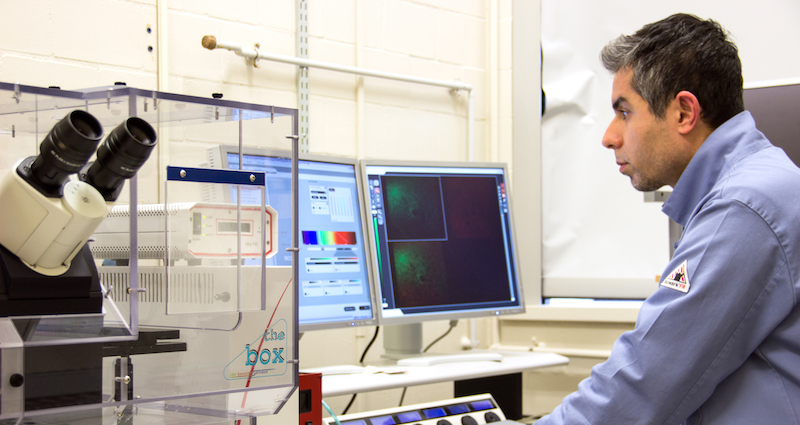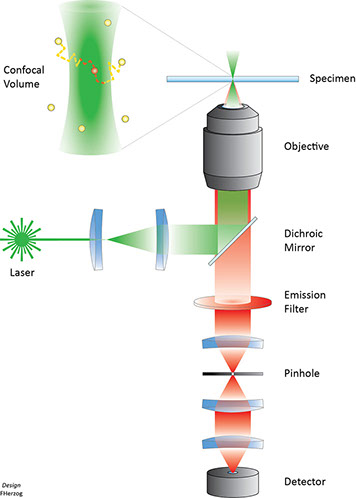Fluorescence Correlation Spectroscopy (FCS)

 Fluorescence correlation spectroscopy (FCS) is a correlation analysis of fluctuation of the fluorescence intensity we use to measure the size (0.5 - 200 nm) and number of nanoparticles in solution. In FCS, diffusion coefficients are determined for fluorescent molecules and particles passing through an optically defined, laser illuminated volume using a confocal laser scanning microscope. The technique works at or near single molecule detection and provides an average diffusion coefficient number, Dn, for singly labeled particles or a weight average diffusion coefficient, Dw, for conditions in which several fluorescent labels are bound to each nanoparticle. FCS is a very sensitive analytical tool because it observes a small number of molecules (nanomolar to picomolar concentrations) in a small volume (~1 μm3) but requires that the nanomaterials are fluorescently labeled. In order to get around this potential constraint, we have developed a number of non-perturbing, low cost, fluorescent labeling techniques. The technique requires a confocal laser scanning microscope (Leica, LSM SP5), which can also be used for standard fluorescent microscopy applications.
Fluorescence correlation spectroscopy (FCS) is a correlation analysis of fluctuation of the fluorescence intensity we use to measure the size (0.5 - 200 nm) and number of nanoparticles in solution. In FCS, diffusion coefficients are determined for fluorescent molecules and particles passing through an optically defined, laser illuminated volume using a confocal laser scanning microscope. The technique works at or near single molecule detection and provides an average diffusion coefficient number, Dn, for singly labeled particles or a weight average diffusion coefficient, Dw, for conditions in which several fluorescent labels are bound to each nanoparticle. FCS is a very sensitive analytical tool because it observes a small number of molecules (nanomolar to picomolar concentrations) in a small volume (~1 μm3) but requires that the nanomaterials are fluorescently labeled. In order to get around this potential constraint, we have developed a number of non-perturbing, low cost, fluorescent labeling techniques. The technique requires a confocal laser scanning microscope (Leica, LSM SP5), which can also be used for standard fluorescent microscopy applications.
This content has been updated on 12 May 2022 at 16 h 35 min.
